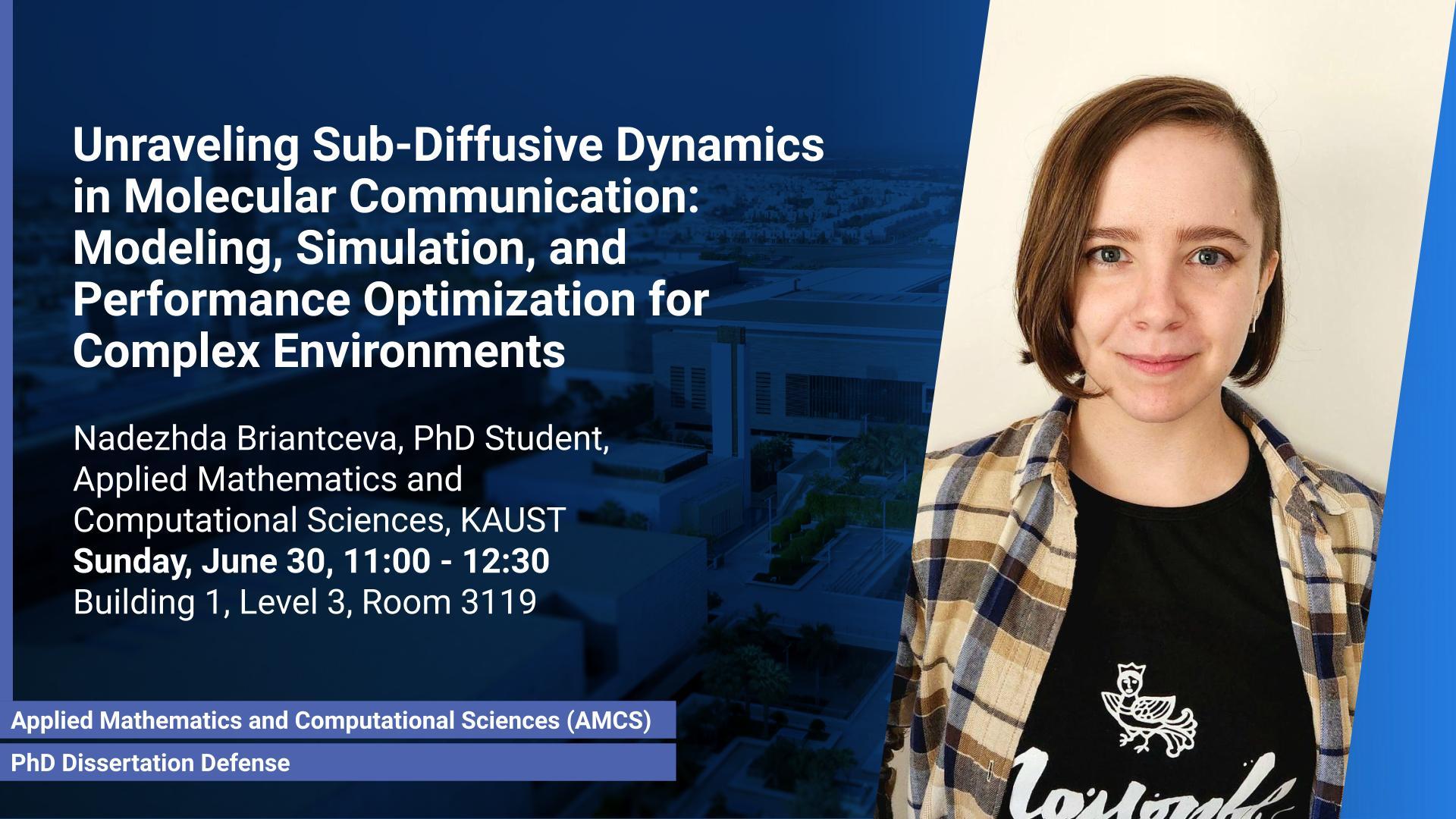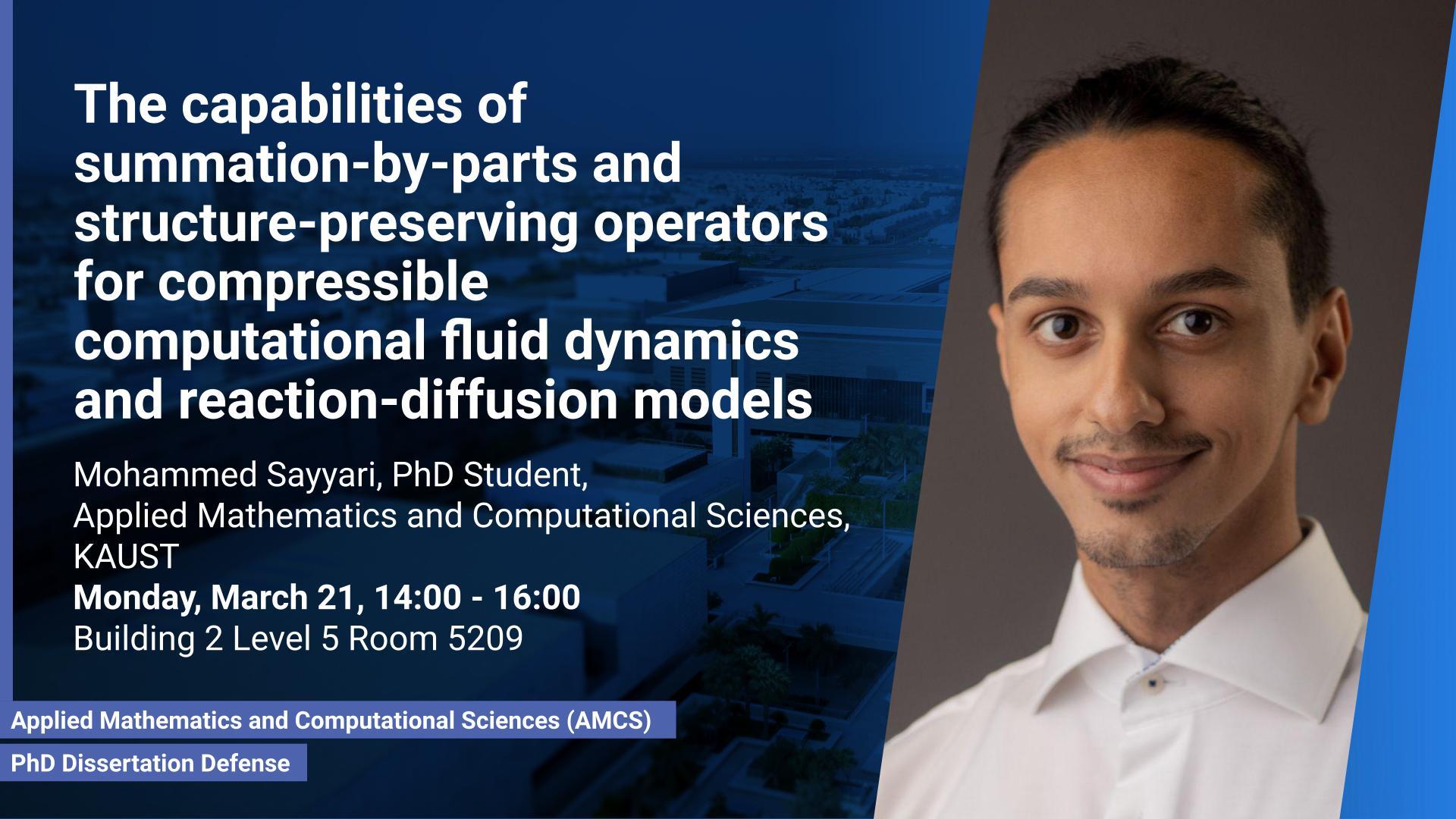Sunday, June 30, 2024, 11:00
- 12:30
Building 1, Level 3, Room 3119
Molecular communication (MC) is a promising paradigm for information transmission in complex environments, such as living cells and porous media. While most existing works consider standard diffusion, where the mean square displacement (MSD) of information molecules (IMs) scales linearly with time, this dissertation focuses on sub-diffusive dynamics in crowded and complex environments. The primary objectives of this research are to model, simulate, and analyze the performance of MC systems in sub-diffusive environments.

